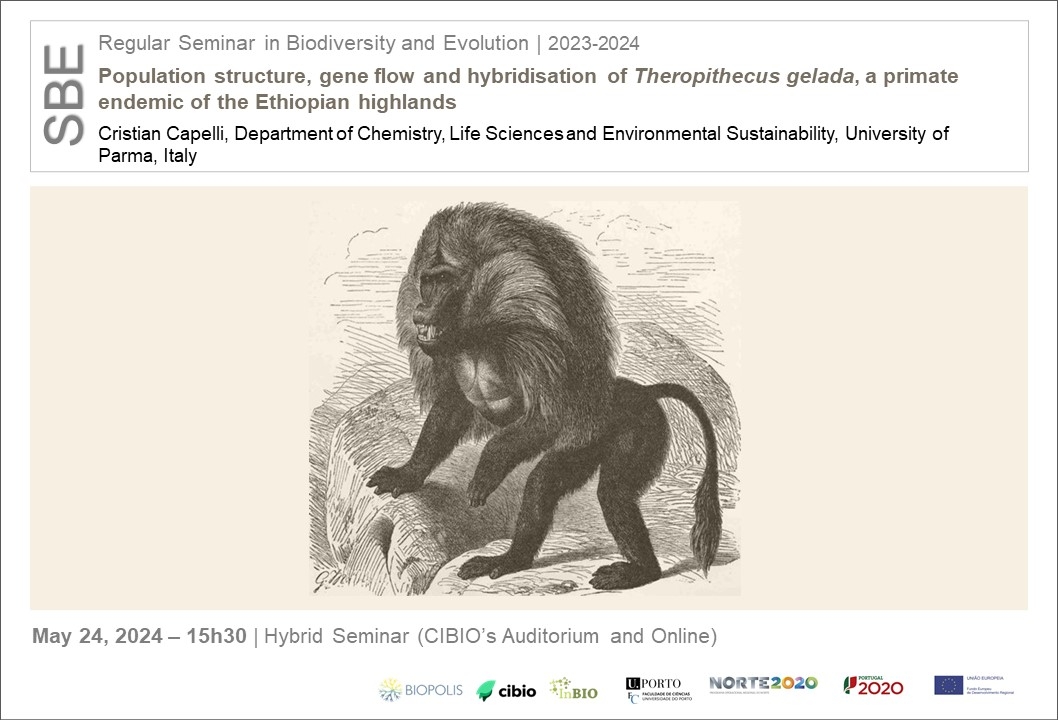Population structure, gene flow and hybridisation of Theropithecus gelada, a primate endemic of the Ethiopian highlands
24 May 2024 - Cristian Capelli, Department of Chemistry, Life Sciences and Environmental Sustainability, University of Parma, Italy | 15h30 | Hybrid Seminar

REGULAR SEMINAR IN BIODIVERSITY AND EVOLUTION
Theropithecus gelada, the last surviving species of this genus, occupy a unique and highly specialised ecological niche in the Ethiopian highlands. A subdivision in three geographically defined populations (Northern, Central, and Southern) has been tentatively proposed for this species on the basis of genetic analyses, but genomic data has been investigated only for two of these groups. Here we combined newly generated whole genome sequences of individuals sampled from the population living south of the East Africa Great Rift Valley with available data from the other two gelada populations to reconstruct the evolutionary history of the species. Integrating genomic and paleoclimatic data we found that gene-flow across populations and with Papio species tracked past climate changes.
Cristian Capelli graduated in Biological Sciences at the University of Rome La Sapienza and obtained his doctorate at the Catholic University of Rome. His PhD focused on ancient DNA and the genetics of human populations, which included research in the laboratories directed by S. Paabo (Munich) and D. B. Goldstein (London). He joined the University of Oxford in 2006, first as a Lecturer and then as Associate Professor in Human Evolution, where he remained until 2020, when he moved to the University of Parma. He is currently Associate Professor of Anthropology at the Department of Chemical, Life and Environmental Sciences in Parma. His research focuses on the characterization of the evolutionary history of human populations and non-human primate species through the analysis of their genomic variability.
[Host: Maria Joana Silva, Biodiversity of Deserts and Arid Regions - BIODESERTS]